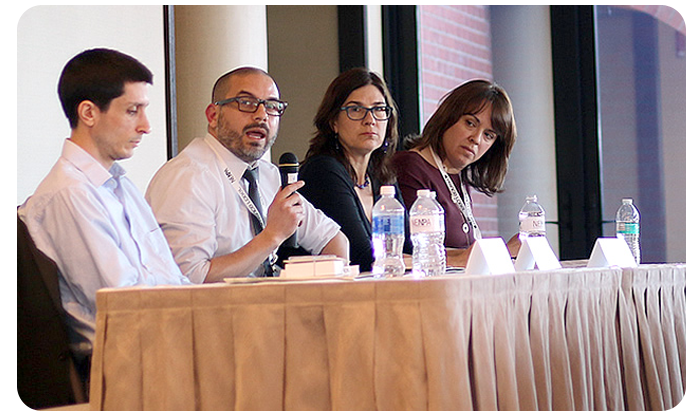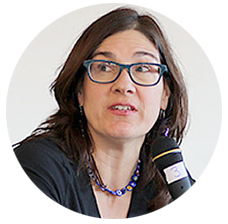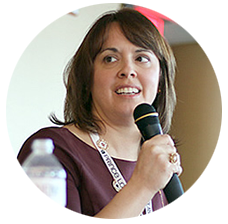By Morgan Mapstone,
Bulletin Correspondent

Managing time and data correctly is crucial to the success of an investigative story, according to Jenifer McKim, a senior investigative reporter at the New England Center for Investigative Reporting at Boston University.
McKim joined three other award winners as panelists Saturday, Feb. 25, at the New England Newspaper and Press Association winter convention for a discussion titled “Inside Publick Occurrences.”
The discussion, attended by 30 people, covered a range of challenges, including data management, faced by last year’s winners of NENPA’s Publick Occurrences Awards.
McKim discussed the inspiration behind her award-winning series on child abuse and neglected deaths in Massachusetts. To her, the most important goal for an investigative story, especially one with emotional content, is to use data in a way that will spark awareness and action in the reader.
“We didn’t want to write a sad story without people learning from it,” McKim said.
McKim warned that the time frame for investigative action can be trying, especially in cases where data takes time to uncover. McKim suggested making Excel spreadsheets of stories and interviews to properly manage what has to be done to move the story along.
Because most of the award-winning work was made up of data-heavy stories, panelists gave tips on how to turn data into a readable story.
Panelist Carlos Virgen, digital news director at The Day Publishing Co. of New London, Conn., used 19 years of accident data on Interstate 95 to create his series, I-95: Deadly, Overcrowded. To turn the large amount of data into a series, Virgen decided to connect the data with people personally affected by the highway.
“We had to identify the people affected,” Virgen said. “Otherwise the story would have been just 20 years of data.”
Other panelists agreed on the importance of humanizing the data in a story.
Panelist Alex Elvin, a reporter for the Vineyard Gazette of Martha’s Vineyard, Mass., and author of a nine-part series, Coastal Ponds under Pressure, thought that bringing a personal attachment to the data would improve the impact of the series. Elvin used data about nitrogen levels in ponds, and found that relating the failing ponds’ effects on those living around the ponds was most effective.
“We tried to keep a focus on places and people, which helped tell the story,” Elvin said.
Similarly, panelist Lynne Sullivan discussed the role that her interactions with the public had in her follow-up series on the first-ever mayoral recall election in Fall River, Mass.
Sullivan, editor in chief of The Herald News of Fall River, Mass., said she felt a strong responsibility to guide a community conversation after the recall of the elected official.
“It’s when you talk with regular people outside of the usual elected officials that people start to understand the story more,” Sullivan said.
NEWS

‘We didn’t want to write a sad story without people learning from it.’
—Jenifer McKim, Senior investigative reporter
New England Center for Investigative Reporting, Boston University

‘We had to identify the people affected. Otherwise the story would have been just 20 years of data.’
—Carlos Virgen, Digital news director
The Day Publishing Co., New London, Conn.

‘We tried to keep a focus on places and people, which helped tell the story.’
—Alex Elvin, Reporter
Vineyard Gazette, Martha’s Vineyard, Mass.

‘It’s when you talk with regular people outside of the usual elected officials that people start to understand the story more.’
—Lynne Sullivan, Editor in chief
Herald News, Fall River, Mass.

